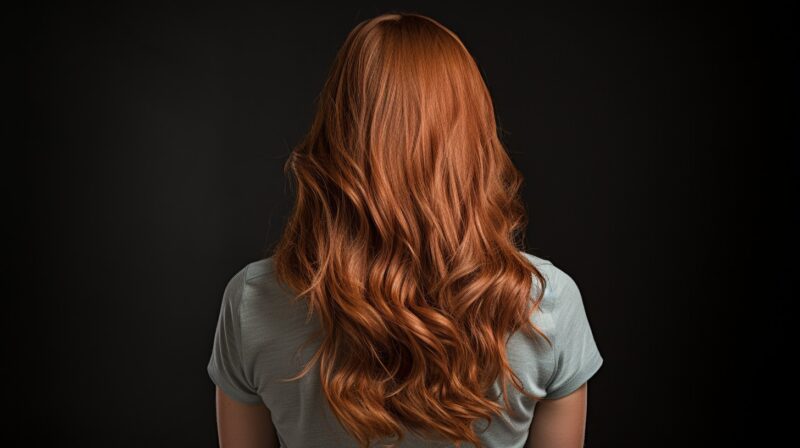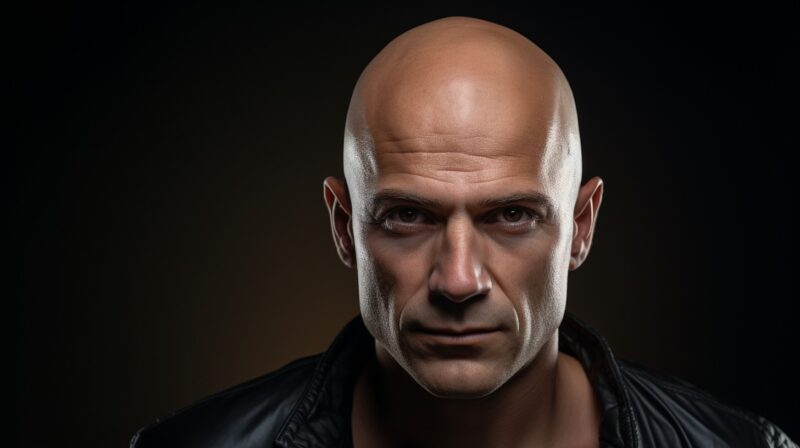Hair loss is a common concern affecting many people worldwide. While genetics and lifestyle factors are often cited as primary causes, the role of sunlight in hair health has gained attention. In this comprehensive exploration, we delve into whether a lack of sunlight can contribute to hair loss, providing insights from reputable medical sources.
The Role of Sunlight in Hair Health
Sunlight, specifically ultraviolet (UV) rays, is known for its vital role in vitamin D synthesis, which is essential for overall health. Vitamin D receptors in hair follicles suggest a connection between sunlight exposure and hair growth.
According to the American Academy of Dermatology, vitamin D is crucial for the creation of new hair follicles. Hair follicles are the tiny pores from which new hairs grow. Adequate vitamin D levels are necessary to stimulate hair follicles and maintain their normal function.

Exploring the Direct Effects of Sunlight on the Scalp
Sunlight’s direct effect on the scalp goes beyond vitamin D synthesis. Increased blood flow to the scalp can nourish hair follicles with oxygen and essential nutrients, which can be beneficial for hair growth. However, excessive exposure to UV rays can damage the hair shafts and protein structure, leading to hair thinning and brittleness.
Balancing Sun Exposure for Optimal Hair Health
While moderate sunlight exposure can benefit hair health, it’s crucial to balance it to avoid damage. According to WebMD, protecting hair from prolonged sun exposure is essential to prevent dryness and brittleness. This can be achieved by:
- Wearing a hat or scarf when outdoors
- Using hair products with UV filters
- Limiting direct sun exposure during peak hours
The Link Between Vitamin D Deficiency and Hair Loss

Vitamin D deficiency is a global health issue that can have various implications, including hair loss. According to the National Institutes of Health, vitamin D plays a critical role in hair production and cycle regulation. A deficiency in this vitamin may cause hair loss, particularly in cases like alopecia areata, an autoimmune condition characterized by severe hair loss.
Understanding the Biological Mechanism
The biology behind vitamin D’s influence on hair involves the regulation of the hair growth cycle. According to ScienceDaily, vitamin D receptors in hair follicles participate in the hair cycle, especially in the transition from the resting to the growth phase. Without sufficient vitamin D, hair may remain in the resting phase, resulting in less new hair growth and noticeable hair thinning.
It’s also worth noting that specific nuances of mineral intake, such as the effects of consuming zinc, can have its own set of implications for overall well-being and it’s surely beneficial for your hair.
Addressing Vitamin D Deficiency for Hair Health
Improving vitamin D levels can contribute positively to hair health. This can be achieved through:
- Controlled sunlight exposure
- Diet rich in vitamin D (e.g., fatty fish, egg yolks, fortified foods)
- Vitamin D supplements, if necessary, under medical guidance
Other Factors Influencing Hair Loss

While sunlight and vitamin D play a role, other factors also contribute to hair loss. According to the Mayo Clinic, these include genetics, hormonal changes, medical conditions, and certain medications. It’s crucial to understand that hair loss is often multifactorial, and addressing one aspect may not completely resolve the issue.
The Importance of a Holistic Approach
A holistic approach to hair health considers various aspects, including diet, lifestyle, and stress management. According to Cleveland Clinic, maintaining a balanced diet, reducing stress, and avoiding harsh hair treatments can significantly impact hair health. In addition to addressing potential vitamin D deficiency, these measures can help maintain healthy hair growth.
Seeking Professional Advice for Hair Loss
For those experiencing hair loss, seeking professional medical advice is essential. A healthcare provider can diagnose the underlying cause and recommend appropriate treatment options. According to Harvard Health Publishing, treatments for hair loss may include topical medications, oral treatments, or lifestyle modifications, depending on the cause.
FAQ
Can wearing hats to protect against sun exposure cause hair loss?
No, wearing hats does not cause hair loss. It’s a myth that hats contribute to baldness. However, it’s important to keep hats clean to prevent scalp infections.
Are there specific times of day when sun exposure is most beneficial for hair health?
Early morning or late afternoon sun exposure is generally safer for skin and hair. During these times, UV rays are less intense compared to midday.
Can hair loss due to lack of sunlight be reversed?
If hair loss is primarily due to vitamin D deficiency caused by lack of sunlight, it can often be reversed by correcting the deficiency through diet, supplements, and moderate sun exposure.
Are indoor lights effective in providing the same benefits as sunlight for hair?
Indoor lights, including special UV lamps, do not replicate the full spectrum of sunlight and are not as effective in synthesizing vitamin D necessary for hair health.
Is there a difference in sun-related hair health between different hair types?
Different hair types may respond differently to sun exposure, but the basic principles of vitamin D synthesis and UV protection apply to all hair types.
Can sunscreen be applied to the scalp to protect hair?
Yes, sunscreen can be applied to the scalp, especially in areas with thinning hair, to protect against UV damage. Hair care products with SPF are also available.
Do dietary supplements for hair growth effectively replace sunlight?
While supplements can provide essential nutrients for hair growth, they do not fully replace the benefits of natural sunlight, such as improved mood and circadian rhythm regulation.
Conclusion
Sunlight plays a vital role in maintaining hair health, primarily through its influence on vitamin D synthesis. However, hair loss is a complex condition influenced by various factors, including genetics, diet, and lifestyle. While moderate sunlight exposure can benefit hair health, it’s essential to balance it with proper scalp protection.
Addressing vitamin D deficiency and adopting a holistic approach to hair care can contribute to healthier hair growth. For those struggling with hair loss, consulting a healthcare professional for tailored advice is crucial.
